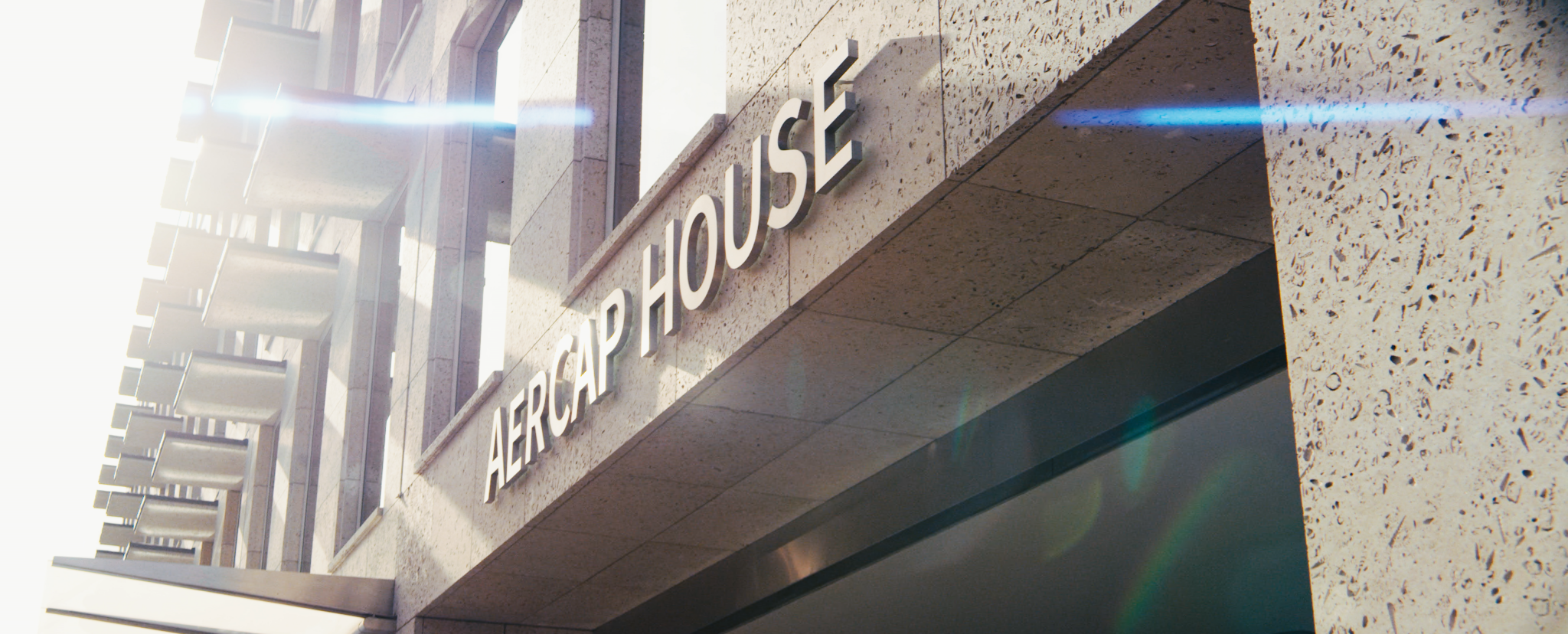Yesterday, AerCap updated the market on its four quarter results, missing estimates that impacted its share price that also suffered as a result of the impairment of aircraft and the Russian fleet. AerCap’s fourth quarter net income was $88.8m or $0.44 per share; excluding the expenses related to the GECAS acquisition ($139m for the quarter, which includes amortisation and cost of the $24bn bridge facility, and legal fees and other costs), net income for the period was $211m or $1.04 per share, which was below analyst consensus estimates of $1.88 per share.
Aengus Kelly, Chief Executive Officer of AerCap, said: “2021 was a milestone year for AerCap as we closed the GECAS transaction on November 1st. This transaction significantly enhanced and diversified our fleet, broadened our customer base and geographic reach, increased our product offering and added outstanding new talent - the combination of which we expect to lead to increased revenues, earnings and cash flows in the future. Notwithstanding the Ukraine invasion and the broad sanctions imposed against Russia, where we had approximately 5% of our fleet, we believe the continued recovery in air travel in many parts of the world puts AerCap on a positive trajectory heading into 2022.”
AerCap’s fourth quarter results are the first to include results from GECAS – just two months from November to December 2021. AerCap’s total revenue for the quarter was $1.442bn – a 40% increase from Q4 2020 boosted by those legacy GECAS leases. AerCap reported a drop in maintenance rents due to a number of lease terminations in the fourth quarter. The lessor reported an increase in operating cashflow thanks to $409m from its LATAM claim and lease referral repayments. AerCap’s deferred balanced was $587m – higher than the third quarter due to the combination of GECAS referral balances. However, AerCap noted that deferral balance continues to reduce and is expected to do so throughout 2022. During the quarter AerCap sold 19 aircraft, two engines and three helicopters for a total of $412m, equating to net gain for the quarter of $25m or a 6% gain on sale margin.
On the earnings call, AerCap explained the company’s Russian exposure, which prior to sanctions comprised 135 owned aircraft and 14 engines on lease to Russian airlines – roughly 5% of its net book value – which generate approximately $33m monthly lease revenue. These assets have a net carry value of $3.1bn including the book value, maintenance rights and reserves held. AerCap noted that it is currently assessing the condition of these aircraft and that it has $260m letters of credit related to its Russian assets that are not on its balance sheet, which mainly represent security deposits that were not paid in cash. AerCap stated that it has presented requests for payment from all of the banks providing the letters of credit and so far has received $175m and is pursuing the remainder. The lessor is continuing to make efforts to repossess its aircraft but notes the uncertainty of success and that it expects to recognise an impairment on the aircraft in Russia that may be as early as the second quarter of this year. AerCap has also submitted an insurance claim for $3.5bn for its Russian assets, but notes again the uncertainty of success of the claims and also stated that it is reasonable to assume that those claims will be contested.
AerCap notes its strong liquidity position, with total sources of liquidity of approximately $18bn. AerCap’s leverage ratio was 2.66x at the end of the fourth quarter, and the lessor cost of debt has declined to 3.2% from 3.8% at the end of Q42020.
AerCap’s effective tax rate for the full year 2021 was 14.2%, compared with the effective tax rate of 5.5% for the full year 2020. The effective tax rate is impacted by the source and amount of earnings among the company’s different tax jurisdictions as well as the amount of permanent tax differences relative to pre-tax income. The company’s effective tax rate was 21.7% for the fourth quarter of 2021 and the fourth quarter of 2020.
As of December 31, 2021, AerCap’s portfolio consisted of 3,701 aircraft, engines and helicopters that were owned, on order or managed. The average age of the company’s owned aircraft fleet was 7.1 years (3.4 years for new technology aircraft, 13.0 years for current technology aircraft) and the average remaining contracted lease term was 7.3 years.
AerCap senior management remain very bullish on global demand for air travel, with robust demand for planes around the world and especially now in Southeast Asia as its reopens its borders. The rising oil price was mentioned but Kelly noted in the earnings call that airlines have survived with oil prices above $100 a barrel before between February 2011 and September 2014, and indicated that he remains confident airlines without hedging can pass on those costs without diminishing travel demand.
AerCap also noted its burgeoning cargo business and the benefit from its joint venture with IAI for 777-300ER passenger-to-freight cargo conversions, which is reported to be experiencing strong demand. Kelly noted that AerCap’s presence in the cargo business will grow over the years to come. He couldn’t be drawn on commenting on any investment in eVTOLs, however, stating only that AerCap’s focus is on its own businesses, in which it has the utmost confidence.
AerCap hasn’t be able to provide solid guidance for the rest of the year due to the uncertainty in Russia, but noted again the reduction in deferral balances and rise in air travel demand, as well its burgeoning cargo business and helicopter unit. In the earnings call the events in Russia were described as a setback but a “very manageable setback” due to the core strength of the diversified business. Additionally, responding to a question on the violation of the Cape Town Convention by Russia, Kelly described it as a “temporary aberration” that he does not believe will impact other jurisdictions around the world over the long-term.

